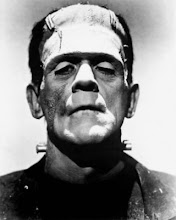Thursday, April 22, 2010
John Stuart Mill, 1800s
http://simple.wikipedia.org/wiki/Politics
During the time Frankenstein was written, according to Mill democracy was the most important political development of the 1800s. In a democracy, power lies in the citizens who elect the people to represent them. I feel Dr. Frankenstein's creation is in the exact opposite situation. I feel if he did have to power to choose who represents him the last person he would chose is his creator. I think the monster would choose Safie to represent him because when she comes into the peasant's home everyone is overjoyed! Unfortunately, this has not been the case for the monster because of his appearance. If the monster chooses Safie to represent him people might get to know him because of the type of person Safie is rather than automaticall assuming that this tall, hideous creature has ONLY the worst intentions.
Adrianna Sikula
Treaty with the Chickasaw, 1805
http://www.floridahistory.com/chickasaw-land.html
The Chickasaw Treaty was approved May 22, 1807 and annouced and enforced only a day later. This treaty consisted of articles of arrangement made between two comissioners of the United States, James Robertson and Silas Dinsmoor, and the warriors and Mingo Chiefs of the Chickasaw nation of Indians. Artile 1 of this treaty reminds me of Dr. Frankenstein's embarassment when the monster came alive. Like the Chickasaw merchants and traders of this treaty... Dr. Frankenstein looked to create something to benefit man kind and himself. How ever both intentions did exactly the opposite of what they hoped. The Chickasaws lost priviledge to land, while Dr. Frankenstein, in a way, lost the priviledge of having a relationship with some of those he held dear to his heart.
Adrianna Sikula
Wednesday, April 7, 2010
Harriet Tubman -- What?? Harriet Tubman.. in the story of Frankenstein? YUP! How??
Party Games- Politics of the 1800s
Mark Wahlgren Summers, a University of Kentucky history Professor, wrote a book about the politics of the 1800s called Party Games.
Critic Ralph Derickson summarizes that in Summer's book...
"Summers also points out that hardball politics and third-party challenges helped make the parties more responsive. Ballyhoo did not replace government action. In order to maintain power, major parties not only rigged the system but also gave dissidents part of what they wanted, Summers added.The persistence of a two-party system, Summers concludes, resulted from its adaptability, as well as its ruthlessness. Even the reform of political abuses was shaped to fit the needs of the real owners of the political system – the politicians themselves."
http://www.uky.edu/PR/News/Archives/2004/May2004/040507_summers_book.htm
When Derickson mentions the political parties rigging the system I immediately thought of Dr. Frankenstein and how he too "rigged the system"... the system being procreation or even science.
Even though Dr. Frankenstein was told that his efforts were going to end up being a "waste of time", he didn't let that stop him. As the two-party system Derickson mentions above was ruthless.. I feel that Dr. Frankenstein's selfish lifestyle (ignoring his family and friends, ignoring possible consequences) was also. His ruthlessness allowed him to stick by and complete the creation as the two-party system's ruthlessness allowed them to remain persistent.
Adrianna Sikula
Friday, April 2, 2010

After the French’s success against Prussia at the battle of Jena, Napoleon issued the Berlin Decree in response to laws passed by Britain also known as an order in council. (An Order-in-Council is a type of law making by wealthy governing individuals in the name of the queen and who answer to the queen, who in the time being was Queen Elizabeth II.) The Berlin decree forbade any country allied or dependant on France to trade with the British and the Irish. This move was implemented by Napoleon to destroy the United Kingdoms economy. However, this plan backfired. The only country’s economy which was affected by this plan was France itself. The British controlled the Atlantic trade. Consequently, the United Kingdom did not falter. Eventually countries began to break away from the Continental system, created by Napoleon, which consisted of all countries dependant or allied with France. This sequentially devastated France and led to Napoleon Bonaparte’s downfall.
On the website: http://www.salemwitchtrials.com/history/1800-1840.htm, it is stated:
“Berlin Decree, 1806: Was created in response to the Order in Council by the British, in which the French proclaimed a blockade of the British Isles, and any ship attempting to enter or leave a British port would be seized by France. The Decree was answered with another Order in Council, in which all ships must come to England for licenses of trade.”
The Berlin decree had a minimal effect on the United Kingdom’s economy due to some of Britain’s order in council which were laws created to mediate the problematic trade situation.
-Reuven Ilyayev
